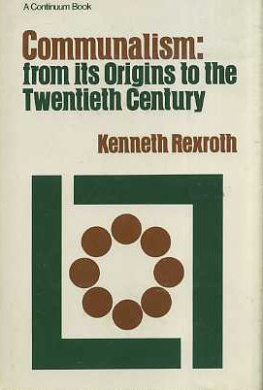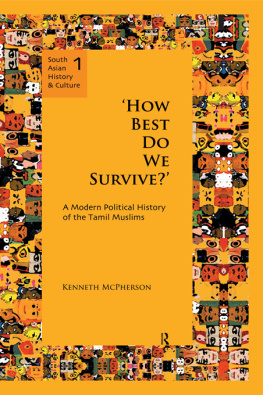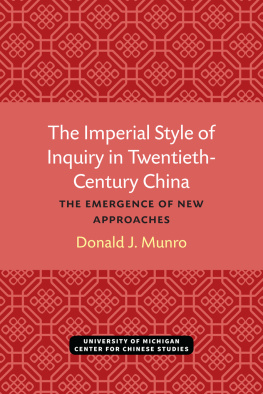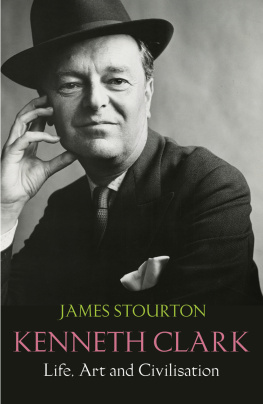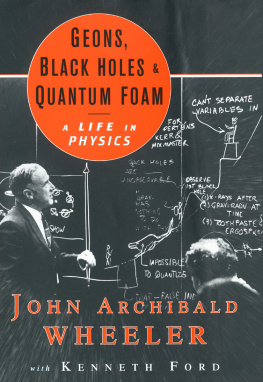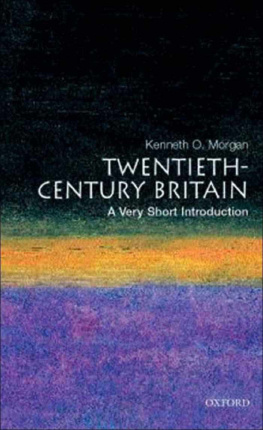Kenneth Rexworth - Communalism: From Its Origins to the Twentieth Century
Here you can read online Kenneth Rexworth - Communalism: From Its Origins to the Twentieth Century full text of the book (entire story) in english for free. Download pdf and epub, get meaning, cover and reviews about this ebook. year: 1974, publisher: Seabury Press, genre: Religion. Description of the work, (preface) as well as reviews are available. Best literature library LitArk.com created for fans of good reading and offers a wide selection of genres:
Romance novel
Science fiction
Adventure
Detective
Science
History
Home and family
Prose
Art
Politics
Computer
Non-fiction
Religion
Business
Children
Humor
Choose a favorite category and find really read worthwhile books. Enjoy immersion in the world of imagination, feel the emotions of the characters or learn something new for yourself, make an fascinating discovery.
- Book:Communalism: From Its Origins to the Twentieth Century
- Author:
- Publisher:Seabury Press
- Genre:
- Year:1974
- Rating:3 / 5
- Favourites:Add to favourites
- Your mark:
- 60
- 1
- 2
- 3
- 4
- 5
Communalism: From Its Origins to the Twentieth Century: summary, description and annotation
We offer to read an annotation, description, summary or preface (depends on what the author of the book "Communalism: From Its Origins to the Twentieth Century" wrote himself). If you haven't found the necessary information about the book — write in the comments, we will try to find it.
Communalism: From Its Origins to the Twentieth Century — read online for free the complete book (whole text) full work
Below is the text of the book, divided by pages. System saving the place of the last page read, allows you to conveniently read the book "Communalism: From Its Origins to the Twentieth Century" online for free, without having to search again every time where you left off. Put a bookmark, and you can go to the page where you finished reading at any time.
Font size:
Interval:
Bookmark:
From Its Origins to the Twentieth Century
(Complete book by Kenneth Rexroth)
ix
1. 1
2. 11
3. 25
4. 43
5. 61
6. 71
7. 93
8. 109
9. 121
10. 133
11. 155
12. 171
13. 191
14. 209
15. 217
16. 235
17. 241
18. 249
19. 259
20. 273
289
Rexroths Communalism was published in 1974 by Seabury Press.
Copyright 1974. Reproduced by permission of the Kenneth Rexroth Trust.
The Libertarian Tradition
Prior to 1918 the word communism did not mean Left Social Democracy of the sort represented by the Russian Bolsheviks, a radical, revolutionary form of State socialism. Quite the contrary, it was used of those who wished in one way or another to abolish the State, who believed that socialism was not a matter of seizing power, but of doing away with power and returning society to an organic community of non-coercive human relations. They believed that this was what society was naturally, and that the State was only a morbid growth on the normal body of oeconomia, the housekeeping of the human family, grouped in voluntary association. Even the word socialism itself was originally applied to the free communist communities which were so common in America in the nineteenth century.
People who believe in libertarian communism can be grouped roughly under three general theories, each with its old masters, theoreticians, leaders, organizations, and literature. First there are the anarchists in a rather limited variety: communist-anarchists, mutualists, anarcho-syndicalists, individual anarchists, and a few minor groups and combinations. Second, the members of intentional communities, usually but by no means always religious in inspiration. The words communalism and communalist seem to have died out and it would be good to appropriate them to this group, although the by now too confusing word communist actually fits them best of all. Third, there are the Left Marxists, who prior to 1918 had become a widespread movement challenging the Social Democratic Second International. It was to them the Bolsheviks appealed for support in the early days of their revolution. Lenins The State and Revolution is an authoritarian parody of their ideas. They in turn have called it the greatest pre-election pamphlet ever written: Elect us and we will wither away. Against them Lenin wrote Leftism: An Infantile Disorder. There is a story that, when the Communist International was formed, a delegate objected to the name. Referring to all these groups he said: But there are already communists. Lenin answered: Nobody ever heard of them, and when we get through with them nobody ever will. Today these ideas are more influential than they ever have been.
East Germany, Poland, Hungary, Czechoslovakia, each of the revolts against the Russian power has taken the same form as the first, the revolt of the Kronstadt sailors in 1921 free soviets, workers councils, neighborhood committees, and peasant communes the same social forms that were so common in the first years of the Spanish Civil War in Barcelona and in the countryside in Catalonia and Andalusia. In no instance have these revolts been reactionary, anti-communist. The slogan Back to Free Enterprise has never been raised. The fact is that once a society has been converted to the bureaucratic State capitalism of the Bolsheviks with the Communist Manifesto and The State and Revolution taught to all school children, a society, when it rejects the power structure, has no place else to go. The only possible fulfillment of Official Communism is free communism. Like capitalism before it, Marxism as a policy of the ruling class contains within itself the seeds of its own destruction. In Yugoslavia, where a Communist Party did manage to break free from Russian hegemony, the march toward ever greater workers participation in industry, political and economic devolution, and federated communes has been irresistible. The Yugoslav Communist Party may be what Milovan Djilas calls it, the new ruling class; but for that class to withstand the Russian pressure, it must continuously grant concessions to ensure popular support, and these concessions of course take place within an ideological context common to both the bureaucracy and the workers a commitment to communism.
Since the Great Cultural Revolution in China a similar process has been going on, but from the top down. The Chinese Communist Party is trying to create and preserve at all levels of an immense population the social relations of the first two years of the Russian Bolshevik revolution, not by democratic methods but by the most rigid, coercive authoritarianism.
This is the situation in the so-called socialist half of the world: in the capitalist half, ideological development is much further advanced, but the practical results are blocked by a power structure inherited from the industrial and financial organization of nineteenth-century capitalism. Tendencies toward decentralization, and initiative at the point of production, are masked by the outworn juridical apparatus. It is in the freer areas of the social interpersonal relations of individuals, away from factory or governmental bureaucracy, that the revolutionary developments are most apparent. Effective attack on the State and the economic system requires power, and the State, which is simply the police force of the economic system, has, so far, all the effective power. Demonstrations or Molotov cocktails are equally powerless before the hydrogen bomb. This is why the important changes are taking place in what the youth revolt calls life style. And this is why their elders of both Old Left and Right accuse them of parasitism. Communes seem to the older generation as much luxuries of late capitalism as the immensely profitable exploitation of music or drugs.
As concentration and depersonalization increase in the dominant society, as the concentration of capital increases with the takeover of ever larger businesses by conglomerates and international corporations, as more and more local initiative is abandoned to the rule of the central State, and as computerization and automation narrow the role of human initiative in both labor and administration, life becomes ever more unreal, aimless, and empty of meaning for all but a tiny elite who still cling to the illusion they possess initiative. Action and reaction thesis and antithesis this state of affairs produces its opposite. All over the world we are witnessing an instinctive revolt against dehumanization. Marxism proposed to overcome the alienation of man from his work, from his fellows, and from himself by changing the economic system. The economic system has been changed, but human self-alienation has only increased. Whether it is called socialism or capitalism, in terms of humane satisfactions and life-meaning it is the same East and West. So today the present revolt is not primarily concerned with changing political or economic structures but is a head-on attack on human self-alienation as such.
The alternative society which is the form of this revolt has largely come about instinctively. Two centuries of revolutions have exhausted the options. There is no place else to turn.
It is right that ecology should have become so enormously popular at this juncture. It is not just that man is destroying the planet on which he lives, and driving himself toward extinction by mining his environment and reducing all business enterprise to the form of an extractive industry. The human race is a certain kind of species, developed in a specific environment, with specific relations internally, man to man, and externally to other species. Had this situation not existed, the human race would not have evolved, and had it not continued within a narrow range of modification, man would have become extinct. The present relation of man to his environment and man to man has become so unlike the optimum necessary for the evolution of the species that humanity as we know it cannot endure. In such a situation a demand for readjustment is as instinctive as the reaction of an invertebrate animal subject to electric shock. This is what all the schools and tendencies of the libertarian and communal tradition have in common, a primary emphasis on man as a member of an organic community, a biota, in creative, non-exploitative relationship with his fellows and his environment. The communist-anarchists lise Reclus and Peter Kropotkin were both geographers and, if anyone was, they were also the founders of the science of ecology.
Font size:
Interval:
Bookmark:
Similar books «Communalism: From Its Origins to the Twentieth Century»
Look at similar books to Communalism: From Its Origins to the Twentieth Century. We have selected literature similar in name and meaning in the hope of providing readers with more options to find new, interesting, not yet read works.
Discussion, reviews of the book Communalism: From Its Origins to the Twentieth Century and just readers' own opinions. Leave your comments, write what you think about the work, its meaning or the main characters. Specify what exactly you liked and what you didn't like, and why you think so.

